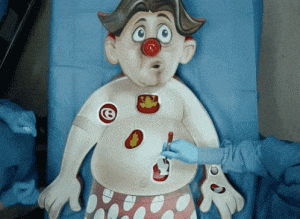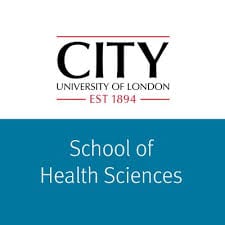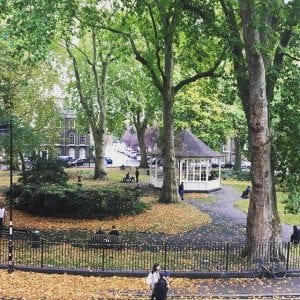It’s February – and a later blog submission from me after a very hectic month and a half! Since my last blog I’ve travelled to Amsterdam to take in the sights of the annual Light Festival by Open Boat, headed home for some very snowy walking in the Peak District, and FINALLY got to see a Wildlife Photographer of the Year Exhibition at the Natural History Museum (and caught a few dinosaurs on the way of course!) – I’ve missed it every year so this feels like an achievement – a day off kind of achievement!
I’ve also now commenced my FINAL EVER PLACEMENT on a Children’s Spinal and Orthopaedic Ward and started chipping away at my academic work…the end is near…
So for this months blog I’m going to focus on something I think is often overlooked by Nursing students nationwide. Nursing is quite a demanding programme. We juggle between placements and academic work, often taking in weekends and night shifts and having shorter holidays than most of our student counterparts. It can leave you feeling really time limited.
With good time management you can still make the most of all that City and the Student Life has to offer and give your future job application a nice little boost in doing so! So here’s my Top 10 Extra Curricular Activities you might want to consider alongside your Nursing degree…
1. Sports and Societies

*Puts on Welsh rugby shirt and dances on chair…again…in fact at least daily since Saturday*
University is a fab place to get stuck in to sports and hobbies, old and new and meet lots of like minded people. We have sports teams at every level, a fantastic sports facility and gym under 10 minutes on foot from Northampton Square and a huge selection of over 70 societies to be involved in – everything from Anime to Cocktails!
Check out the Student’s Union pages for more info or keep an eye out for the dates of the Freshers/Refreshers Fairs that happen in September/January every year!
https://www.citystudents.co.uk/getinvolved/societies/
https://www.citystudents.co.uk/getinvolved/sports/
2. Develop your Leadership Skills

In 3rd Year you will likely undertake a module on Leadership and Management in Professional Practice – in fact, under current NMC guidance, all Nursing programmes must contain a leadership component as it is such a core part of what we do out in practice. Want to get ahead? Look for some opportunities to develop your leadership skills throughout your degree programme.
At present the Council of Deans for Health has received funding from the Burdett Trust for Nursing to run Student Leadership Programmes for Health Care Students Nationwide. Entry to the Programme is competitive but the University will support your application. I was accepted into Cohort 1 in July 2017 and still remain actively involved- attending a leadership workshop just last month! Emails are sent round by the School of Health Sciences for each new intake – always check your emails!
The Students Union also offer a range of opportunities to develop your leadership skills from their very own leadership award scheme to supporting individuals as School, Programme and Class representatives. Check out the Student’s Union website for more information, or ask your Personal Tutor.
As we are now part of the University of London you are also able to apply to the UOTC (Army), URNU (Navy) and UAS (RAF) – the University equivalent to Cadets – where you can develop a range of skills (including leadership) and get paid for your training – you can find information about this on their respective websites, they take new students based on capacity each year in September. You can usually find them on Social Media and at our Freshers Fair too!
3. Become an Ambassador
At City we have two Ambassador schemes for you to be involved with – and if you find yourself with too much energy (like me!) you can do both! There is no set schedule for Ambassador work which means you can easily fit it around your placements/studies – and earn a bit of money for doing so as well!
Marketing Ambassadors (Red T Shirt Ambassadors) – represent the University and work mostly with prospective students. You get the opportunity to work Open Days (Undergraduate & Postgraduate), Applicant Days, Taster Days, Campus Tours and maybe even get your photograph in the prospectus! Extra opportunities often arise including writing yourself a lovely blog…just like this one! With some extra training you can also go on tour – advertising the University at School/College HE Fairs and larger fairs too like WhatUni and UCAS Fairs. Child Nursing Students also get the opportunity to work Selection Day – to help support future applicants through their interview day!
Widening Participation Ambassadors (Purple T Shirt Ambassadors) – work with partnership schools and colleges from Primary through to Sixth Form/College to promote Higher Education/Further Study. You can work Visit Days, Taster Days/Spotlight Days (which run mini course sessions), School/Assembly Talks or even Taster Weeks. You can have the opportunity to develop and lead your own workshops, or even full day event and with extra application/training you may even choose to mentor/tutor young people in partnership schools on a more regular basis. If you’re very lucky they may draw a scarily accurate portrait of you or design you your very own toothbrush of the future! (Featured above!)
4. Become a Buddy

City has a fantastic mentoring scheme in place for first year students to help support settling into University and engaging with University life. It’s a fab support network for you in your first year – but becomes an incredible opportunity to develop your skills in second and third year – with the additional option to become a paid Buddy Leader – supporting the development of the scheme. You are given bespoke training for the role and are then entrusted with up to four first year students.
5. Blog & Tweet your way to success!
The Nursing world is taking Twitter by storm…so much so the @WeNurses Christmas Quiz managed to trend alongside the Gatwick Drones! I may have flunked out of the Christmas themed quiz badly but it made the extended break in Copenhagen Airport a great deal more festive for me!
There are plenty of Student Nurses there to help you find your way including a @WeStudentNurse team!
Through Twitter you will also find some fab bloggers and vloggers – both Student and Qualified Nurses – charting their journey thus far…
Many NHS Trusts and even specific ward areas can now be found on Twitter too – I found my Nursing job vacancy on Twitter!
6. Elective Placement
Currently at City, the Child Nursing students get the option between a 2 week or 4 week Elective Placement block, allocated during Year 2 of the Programme. Our PGDip Programmes do not include an Elective Placement so Postgrads – I’ll see you again at idea 7…
You can use this opportunity to spend time Nursing abroad through an approved charity or simply chasing an area of nursing that you find really interesting/you may like to pursue as a career.
Wherever they are undertaken, Elective Placements must be self-funded – so this is something to bear in mind!
For my Elective I headed back to Derbyshire for a full 4 weeks and undertook my Elective Placement on Paediatric Theatres. I absolutely loved it – and will be working on Paediatric Theatres when I graduate!
7. Get involved with Research

Again, another fab way to get ahead in years one and two is to start thinking ahead when it comes to research…
Cochrane offers fantastic resources on their website to learn more about types of research and research methods which are useful when you come round to dissertation or indeed later stage assignments.
You can even participate, helping out current research by participating as a “Citizen Scientist” through Cochrane Crowd:
http://crowd.cochrane.org/index.html
You’ll soon be a pro at recognising different research methods!
The University itself undertakes a great deal of research and they often advertise for participants – particularly in psychology and the health sciences! See if you can get involved – you will get to know more about research and maybe even bag an Amazon voucher in the process.
8. Volunteering
It can be hard to commit to a regular project as a Student Nurse but many still manage to take advantage of the many ad hoc opportunities advertised through City Volunteering. Volunteering is a fantastic way to both make friends and learn and develop skills. Whether it’s preparing Christmas boxes, raising money for charity or even helping lead first aid courses – there are a range of opportunities constantly available both through the University and across London. Some personal favourites include: volunteering to help with the running of local events (e.g. Parkrun), signing up to “Inspiring the future” to give talks and presentations in schools about Nursing, taking part in the Lord Mayors Parade or cheering your favourite charities runners at the London Marathon (all genuine opportunities I have been involved with over the last 2.5 years)
https://volunteering.city.ac.uk/
9. Attend Events/Conferences
One of the very best things about being a student in London is the sheer amount of national events that happen on your doorstep! We are just a 30 minute walk from the Royal College of Nursing (Student Membership is just £10 a year) who run Nursing events all year round. The Royal Society of Medicine and many major London Museums including the Science Museum, Florence Nightingale Museum and Wellcome Collection regularly run events of interest also.
Over the last 2.5 years I’ve attended a Medical History Open Mic Night, an Adults Only Science Museum event on Celebration and on Food & Drink, attended a lecture on the use of Art & Music in Nursing and a half day conference on Sickle Cell.
Fab ways to get out and explore, have a bit of fun but tick off some learning in the process – a real triple word score!
10. Guest Lectures & the SHS Film Club
If you don’t quite have the energy to venture out or are hoping for something closer to home – the School of Health Sciences runs some excellent on-campus events to get involved with including a monthly film screening with related Health guest speakers which complement our academic programme, and a range of guest lectures of interest – this month we welcomed Professor Lord Robert Winston!
And that’s all from me this month, I’m off back to placement for the remainder of February…I’ll be back again in March to share A Week in the Life of a Child Nursing Student!
















 I know right? I should get this on a T-Shirt, I blog it so much! It’s getting out of hand. However, for the OSCE you need to be in full and correct uniform, and in possession of a pen, fob watch and your University ID card (and minus the fancy nails you got over the Easter Holidays). Save yourself the panic and have all these things in place the night before.
I know right? I should get this on a T-Shirt, I blog it so much! It’s getting out of hand. However, for the OSCE you need to be in full and correct uniform, and in possession of a pen, fob watch and your University ID card (and minus the fancy nails you got over the Easter Holidays). Save yourself the panic and have all these things in place the night before. Walk into the OSCE exam in a positive frame of mind – not quite the suitcase swinging trot through Salzburg I’m quoting here – but a belief that you can do this! I pop away the flash cards a few hours before the exam and focus on a good breakfast or lunch, numerous laps of a Mario Kart (avoiding Rainbow Road which is an obvious confidence crusher!), and blast my best motivational Spotify playlist en route to the University (replace with your personal best activities to unwind). You may want to try a meditation app, adult colouring, reading, taking a walk…whatever helps take your mind fully off the OSCE for just a short while. What you don’t know at this point, you likely won’t in the exam – so deep breath, big smile – think of how fab you’ll feel when it’s over!
Walk into the OSCE exam in a positive frame of mind – not quite the suitcase swinging trot through Salzburg I’m quoting here – but a belief that you can do this! I pop away the flash cards a few hours before the exam and focus on a good breakfast or lunch, numerous laps of a Mario Kart (avoiding Rainbow Road which is an obvious confidence crusher!), and blast my best motivational Spotify playlist en route to the University (replace with your personal best activities to unwind). You may want to try a meditation app, adult colouring, reading, taking a walk…whatever helps take your mind fully off the OSCE for just a short while. What you don’t know at this point, you likely won’t in the exam – so deep breath, big smile – think of how fab you’ll feel when it’s over!












Recent Comments